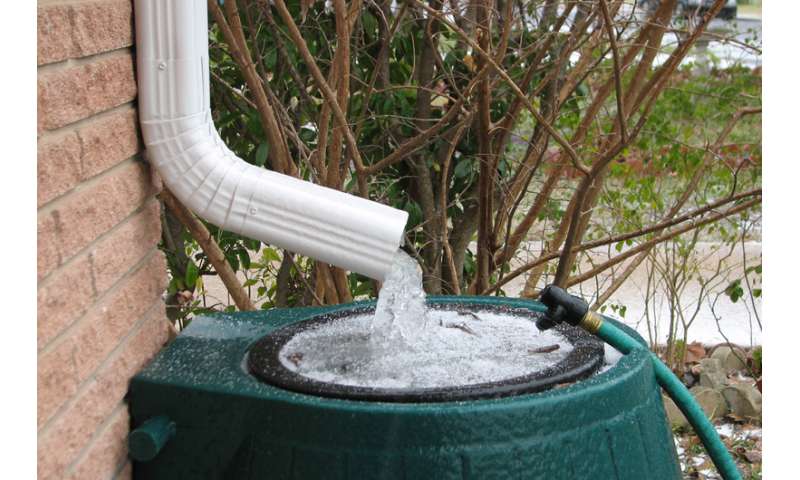Mosquito bites are usually associated with common rash and itch, but also with the risk of mosquito-borne diseases, such as malaria, West Nile fever, and Zika virus. Philadelphia is one of the top cities in the U.S. with a persisting mosquito problem, according to the national pest control company Terminix (Mondon, 2018). Mosquitoes survive and reproduce best in warm and humid areas, so climate change increased the frequency of mosquito-friendly days in several states, including Pennsylvania (Kummer, 2020).
The examination of my neighborhood indicated several weak areas, including rainwater collection systems and uncovered outdoor swimming pools, which contribute to the growing population of mosquitoes during warm seasons. The picture of a typical rainwater tank in Philadelphia may be found at the end of the discussion post (Drexel University, 2016). Most vulnerable areas were privately-owned structures, which means that the authorities might have taken steps to prevent mosquito breeding and removed mosquito-friendly equipment.
The Philadelphia Department of Public Health (PDPH) works to protect our community from mosquito-borne diseases via monitoring mosquito migration and directing adequate funding to emergency measures during outbreaks. Additionally, West Nile surveillance was declared a priority by the PDPH’s disease control services in 2020 when 778 mosquito pools were discovered at 139 trapping sites (Philadelphia Department of Public Health, 2020).
Infection prevention is vital in low-income countries, but it is just as important in the developed world (Laureate Education, 2010). Timely reports of deficiencies in mosquito control can help to prevent the spread of mosquito-borne diseases. To receive the information on mosquito protection, I contacted the PDPH’s Division of Disease Control and consulted with Caroline, the operating officer. I learned that there is a local surveillance system in my community, so the findings should be reported to the PDPH or the Centers for Disease Control (CDC). As a national public health authority, the CDC is responsible for the development of surveillance programs, mosquito control methods, traps, and local quarantine stations for emergencies.
As a PHN, I would advocate for introducing a policy prohibiting the installation of private rainwater collection systems and determining fines for leaving open pools of water for long periods of time. The evidence-based approach can be used to provide local public health authorities with reasons for the policy introduction and convince policymakers to take action in response to the problem. Overall, the policy might improve the situation by reducing the number of potential breeding grounds for mosquitos and decreasing the risk of malaria, Zika, and West Nile fever epidemics.

References
Drexel University. (2016). [Many urban areas are encouraging the use of rain barrels as part of their storm management plans]. Phys. Web.
Kummer, F. (2020). Mosquitoes arrive earlier, stay later in Philly region because of climate change, data suggest. The Philadelphia Inquirer. Web.
Laureate Education (Producer). (2010). Public and global health: Global emergencies and disasters [Video]. Author.
Mondon, M. (2018). Philadelphia is one of the ‘top mosquito cities’ in U.S. Philly Voice. Web.
The Philadelphia Department of Public Health. (2020). West Nile Virus Surveillance. Health Information Portal. Web.